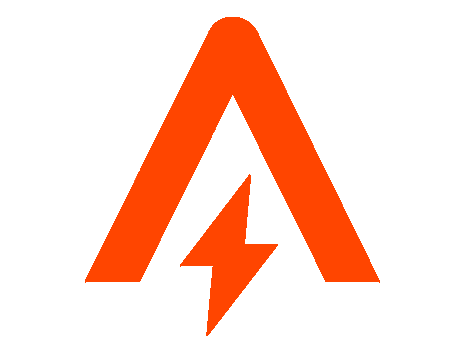Hidden Hair-Damaging Habits and Their Fixes

Bulking up and gaining muscle mass is no easy task. It takes a comprehensive approach that includes strategic eating, progressive strength training, and sufficient rest. Among these foundational elements, many individuals struggle with consistently mastering nutrition.
It’s not just about increasing calorie intake; ensuring an adequate protein supply is crucial to ramp up muscle growth. Without the amino acids protein provides, even intensive exercises like squats and bench presses aren’t enough to produce significant mass gains. That’s why a tailored high-protein diet is essential if your goal is to become as muscular and defined as possible.
This guide covers everything you need to know about harnessing the muscle-building potential of protein. Discover daily protein targets suited to your weight and activity level, plus discover the best whole food sources to incorporate.
Additionally, learn crucial strategies for optimizing protein intake timing around workouts to boost nutrient absorption and muscle development. If substantial muscle gains appeal to you, continue reading to understand how a high-protein diet facilitates rapid strength and size gains!
Importance of Protein in Muscle Building
Among the three macronutrients, protein provides unique advantages specifically aiding muscle growth:
-
Muscle Protein Synthesis: Protein offers amino acid building blocks that continuously support new muscle protein synthesis, which accelerates muscle growth.
-
Repairing Muscle Damage: Intense workouts cause microscopic tears in muscle tissue. Adequate protein intake assists in repair and ultimately expands muscles.
-
Hormone Production: Amino acids aid in producing critical hormones like testosterone and IGF-1, boosting protein synthesis and promoting greater muscle growth.
Muscle growth is contingent on adequate protein intake. But how much exactly should you be consuming?
Daily Protein Consumption Guidelines
Optimal daily protein intake varies based on weight, exercise intensity, and personal goals. Here’s a general outline:
-
Sedentary Individuals: Around 0.8 grams per kilogram of body weight or about 0.35 grams per pound. This equates to roughly 56 grams daily for men and 46 grams for women.
-
Endurance Athletes: Ranging from 1.2-1.4 grams per kilogram or about 0.5 to 0.6 grams per pound meets metabolic demands.
-
Strength Trainers: Preserving and growing muscle requires higher intake—1.6-2.2 grams per kilogram or about 0.7-1 grams per pound.
-
Aggressive Muscle Growth: Consuming upwards of 2.2 grams per kilogram or 1 gram per pound ensures sufficient amino acids for growth and repair.
So, a 175-pound man aiming for muscle growth should target about 175 grams of protein daily. Monitoring and measuring food intake ensures daily goals are met. Proper timing of protein intake is also essential.
Optimal Protein Intake Timing
Besides meeting daily protein goals, timing meals and nutrients around exercises can further promote muscle development:
-
Pre-Workout: Consuming 20-40 grams of protein about an hour before exercising helps maintain amino acid levels and minimize muscle breakdown.
-
Post-Workout: An immediate intake of 20-40 grams following a workout aids in repair, recovery, and growth by leveraging increased nutrient sensitivity and absorption.
-
Before Bed: Consuming 30-50 grams of slow-digesting protein prior to sleep ensures overnight amino acid availability, essential for muscle protein synthesis, which peaks during sleep.
Adhering to a pre-, intra-, and post-workout protein intake model keeps muscles well-nourished, setting the stage for swift gains in size and strength.
Ideal High-Protein Food Sources
Focus on integrating a range of lean, complete protein foods into your daily diet:
-
Lean Beef and Lamb: Rich in leucine, crucial for muscle building, along with iron, zinc, and B vitamins. Opt for 90/10 ground beef and flank steak.
-
Skinless Poultry: Chicken and turkey are low-calorie, versatile options that pair well with carbs like rice and vegetables.
-
Seafood: Salmon, tuna, cod, and tilapia provide over 20 grams of protein per 3 ounces cooked, in addition to anti-inflammatory omega-3 fatty acids.
-
Eggs: Packed with BCAAs for muscle repair and growth. Hard boiling makes them convenient for snacks.
-
Greek Yogurt: An excellent complete protein source, supplying 23 grams per cup alongside probiotics that support digestion and immunity.
-
Cottage Cheese: Contains slow-digesting casein protein, which provides steady amino acid delivery overnight. Opt for low-fat varieties.
-
Protein Powder: Whey and casein supplements offer a quick-absorbing and slow-releasing combination complementing whole food sources.
Combining meats, dairy, and other proteins in meals and snacks helps easily achieve daily protein goals.
Sample High-Protein Day of Eating
Here is a sample high-protein meal plan offering around 200 grams of muscle-building protein:
-
7 am – Preworkout
- 3 whole eggs + 3 egg whites
- 1 cup oatmeal
- 1 cup blueberries
Provides approximately 40 grams of protein
-
9:30 am – Post Workout
- Protein shake
- 1 large banana
Provides approximately 35 grams of protein
-
Noon – Lunch
- 8 oz chicken breast
- 1 cup brown rice
- 1 cup mixed vegetables
Provides approximately 50 grams of protein
-
3 pm – Snack
- Greek yogurt protein parfait
- 30 almonds
Provides approximately 20 grams of protein
-
6 pm – Dinner
- 8 oz flank steak
- Sweet potato
- 1 cup broccoli
Provides approximately 45 grams of protein
-
9 pm – Before Bed
- Casein protein shake
- 1 tbsp peanut butter
Provides approximately 25 grams of protein
Building a muscular physique involves consuming enough protein daily to fuel growth. Aim for 0.7-1 gram per pound of body weight through foods like meat, dairy, eggs, and protein powders. Expert guidance on optimal protein intake and timing can be found to complement your workouts. Incorporate 20-40 grams of protein around workouts when muscles are most ready for growth. Track macros over time to refine your plan.
With a high-protein diet as a foundation for your training, expect compliments on your muscular appearance. Stock up on chicken, Greek yogurt, cottage cheese, protein powder, and other proteins. However, maintain moderation as excessive protein can strain the kidneys. Utilize high-protein foods strategically within your meals to meet daily macros for quicker muscle development.
In summary, building an impressive physique largely depends on consistently eating enough high-quality protein. Provide your body with necessary nutrients, and noticeable muscle gains will follow. Implement this protein strategy to design a comprehensive nutrition plan that supports your mass-building workouts. Impressive size and strength improvements are attainable!




